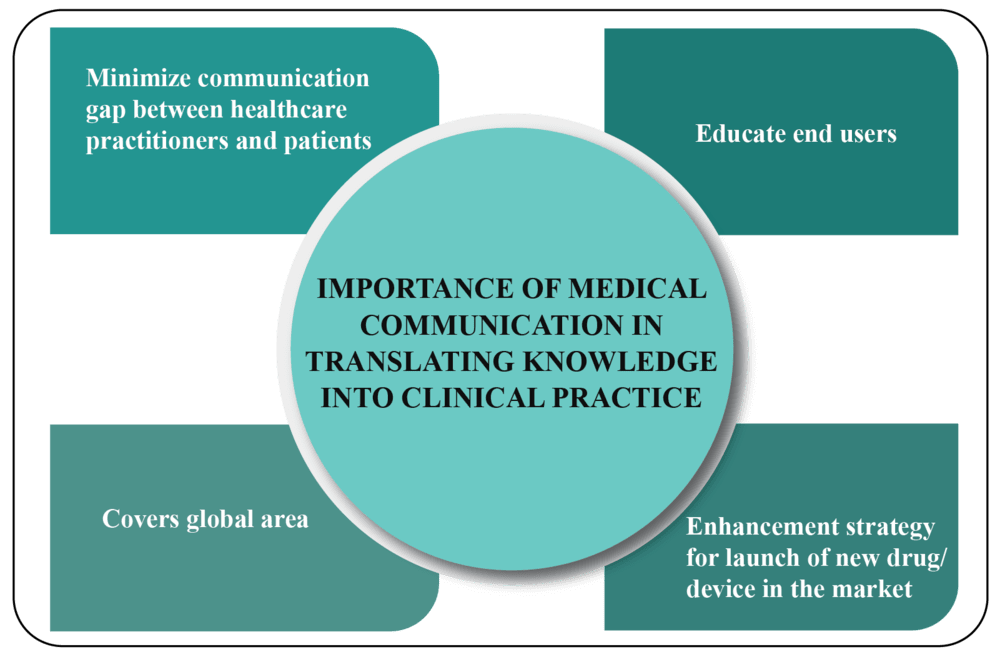Medical Communication – Importance in Translating Knowledge into Clinical Practice
Medical Communication – Clinical research generates immense knowledge which may guide clinical judgement and decision making when implemented wisely. However, a huge gap exists between the knowledge generation and its use in clinical practice. Therefore, in order to translate knowledge into practice, knowledge generators must ensure an uninterrupted access of end users to this knowledge. This could be achieved by an efficient channel of communication. Medical communication involves disseminating the medical knowledge mainly among the healthcare professionals and the public but largely amongst all the stakeholders including policy makers and managers. Transfer or sharing of the medical knowledge among doctors and patients is thus an important step to improve the current status of medical awareness in any geographical area.
Role of “Medical Communication Agencies” or “MedComms”
- The important application of transmitting medical information through the process of medical communication is being applied under the guidance of the healthcare professionals who are working for either pharmaceutical companies or any other research organisations. They serve as a link to interact and minimize communication gap between healthcare practitioners and the patients. Such communications may be intensified by incorporating the services of medical communication agencies. Such medical education agencies are termed as “Medical Communication Agencies” or “MedComms”. Most of the pharmaceutical companies hire such agencies to educate the end costumers about their new products and innovations.
- The MedComms are specialized in medical communication; they create documents which are customized to educate end users. Such documents widely vary in content, target audience, medium of distribution, and complexity level of scientific content but aim to dissipate the knowledge only. Preparing these tools of medical communication is a specialized job performed by medical writers, data analysts and creative designers. These professionals prepare manuscripts for peer reviewed journals, CME literature, posters, mass mailers, Q-cards, leaflets, leave behind literature, slide kits, articles, and other aids customized for purpose.
- The healthcare industry covers the global area conceptualized by the pharma healthcare industries where new therapies are being emerged on the regular basis. Thus to implement these innovative therapies and disease management among the population, a wide range of area are being covered with the help of current information technologies including bulk emailing, messaging, social medias and other advertising media like magazines, newsletters, press releases, product updates and reviews etc.
- Pharmaceutical organizations are concerned on enhancing their new products, medicines or therapies in the market. These methods may include in-person contact to the doctors and the consumers directly and providing them with the educational material in the form of literature like pamphlets, brochures, patient information leaflets etc. Although prescribed medicines are not allowed for the advertisement on the social media, doctors play more relevant role to communicate their products to end consumers. Non- prescribed medicines are available over the counter without doctor consultation thus they are in easy reach to the consumers. These may include nutritional supplements, energy boosters drinks etc. which are easy to communicate through the advertising media on social networks.
WorkSure® Medical Communication
WorkSure® provides an integral support to various healthcare professionals and organizations, which are dealing in the promotional and marketing of the new medicines, therapies and devices innovated for better healthcare outcomes. We have efficient medical writers, data analysts and creative designers who prepare manuscripts for peer reviewed journals. WorkSure® helps to bridge gaps in medical communication, ultimately leading to better healthcare outcomes.
